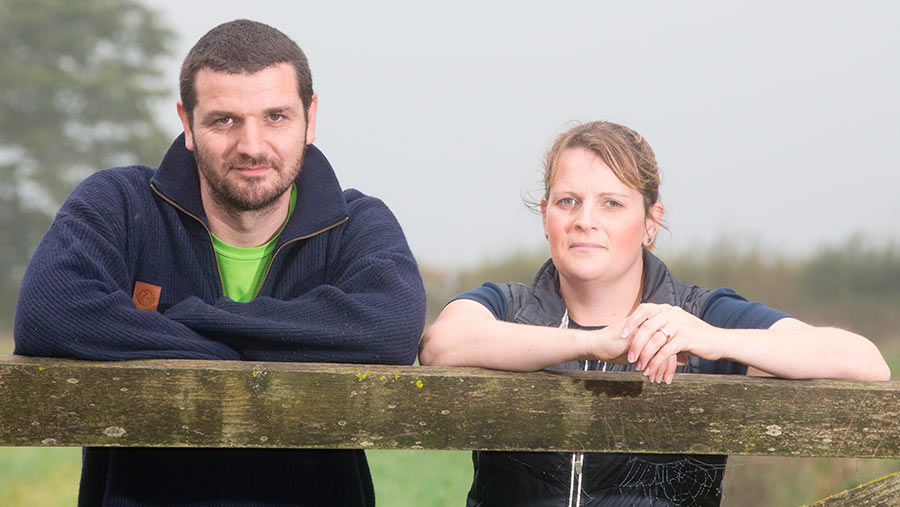Farmer Focus: Regretting keeping those older sheep now
 © Tim Scrivener
© Tim Scrivener I can only imagine every other column in this week is full of the miserable realities of a wet spring.
Unfortunately, in our low-cost extensive lambing system, the difficulties are becoming very apparent.
We rely on grass cover having rested lambing paddocks over the winter and the ability to drive a truck and trailer over the fields to check on stock during lambing.
Non-existent grass growth has meant we have been running silage to sheep.
Using a small eBay-purchased trailer (£160 – I love a bargain), we can manage five silage bales a trip – I have spent long days on the tractor dreaming of a 65K gearbox and 28ft trailer.
Bad move
I remember smugly writing how we had kept a number of older girls for another year. Yeah, not one of my smartest moves.
See also: Farmers advised to manage grass shortage
They have suffered a lot despite throwing silage, oats and mineral buckets at them, and have had some Twin Lamb Disease.
Despite calcium and glucose injections, and drenches, recovery rates have not been great. I must admit to feeling like the world’s worst sheep farmer at times.
Lambing paddocks are spread over 10 miles. Not being able to drive on any fields is going to affect our lambing system considerably.
Cunning plan
The current plan is to put the quad in a horsebox and drive it to each field, check the field, grab any problems and cart back to the horsebox, reload the quad and drive to next field. We are also putting pens in each field for lambs with minor issues.
Jo has been a hero in all this. I even managed to take the kids to McDonald’s one afternoon while she checked sheep, although I had to pull a pair of rotten lambs before I left.
Taking three under-fives for lunch on a bank holiday Monday is a new level of hell – don’t ever try it.
Worse still, during each bite of my burger, I can smell rotten lamb. Thanks to Twitter for suggesting diluted vinegar – I am off to Tesco in the morning.
Rob and Jo Hodgkins run 1,500 ewes across 485ha of grass and have 566ha of arable in Hertfordshire, producing lambs for Tesco and breeding sheep through Kaiapoi Romneys. Subsidy-free farming means sheep must be functional, lamb outdoors and produce lambs on forage alone.
